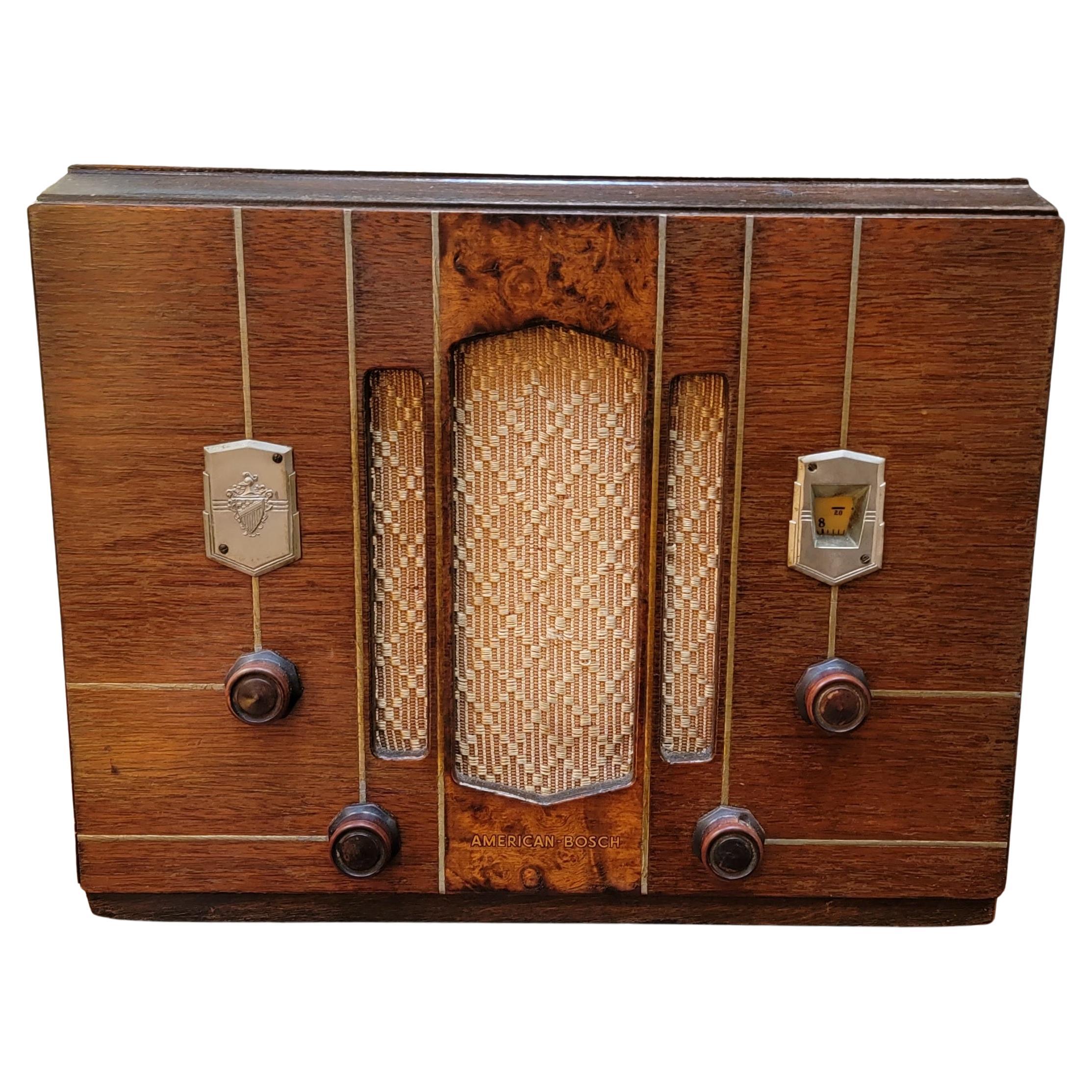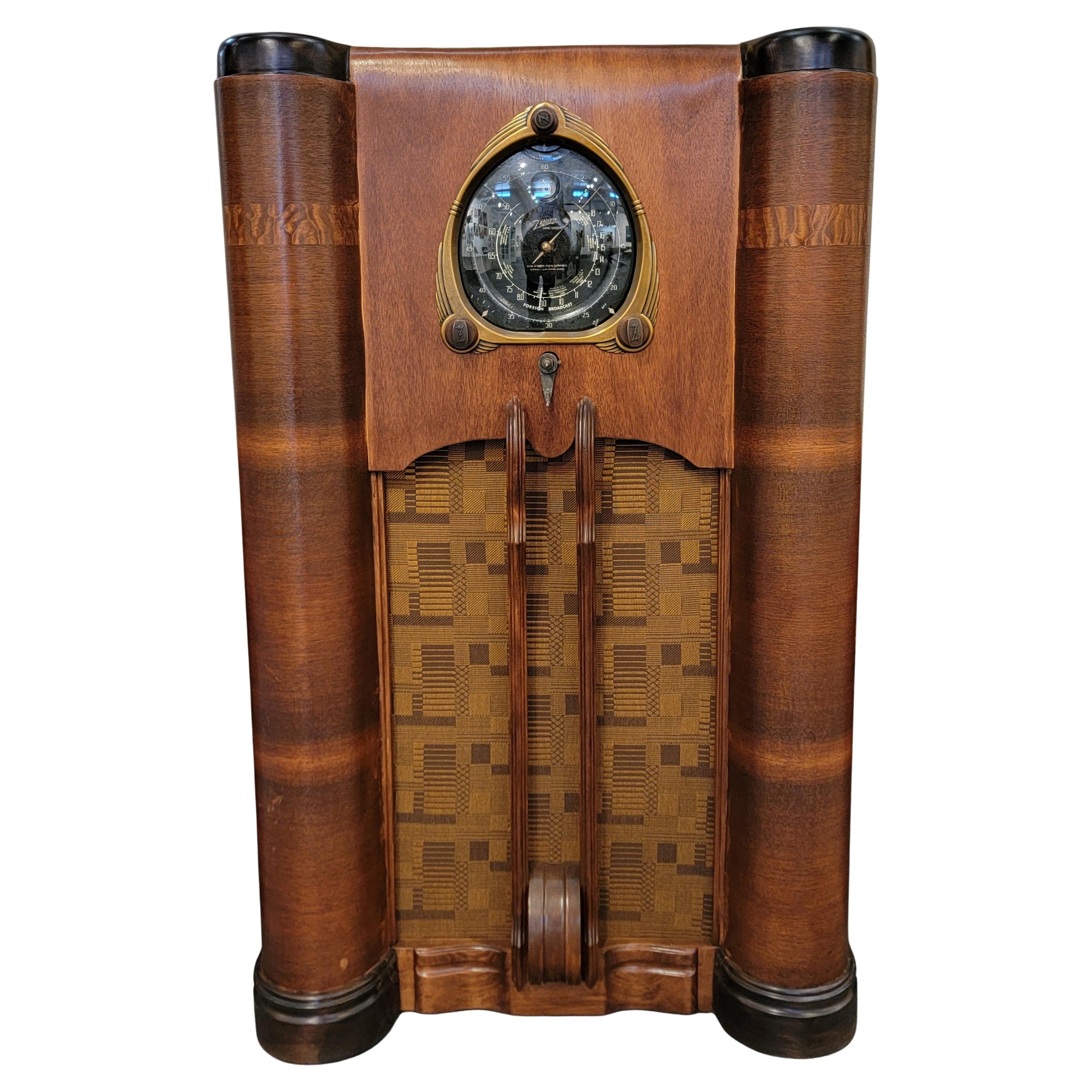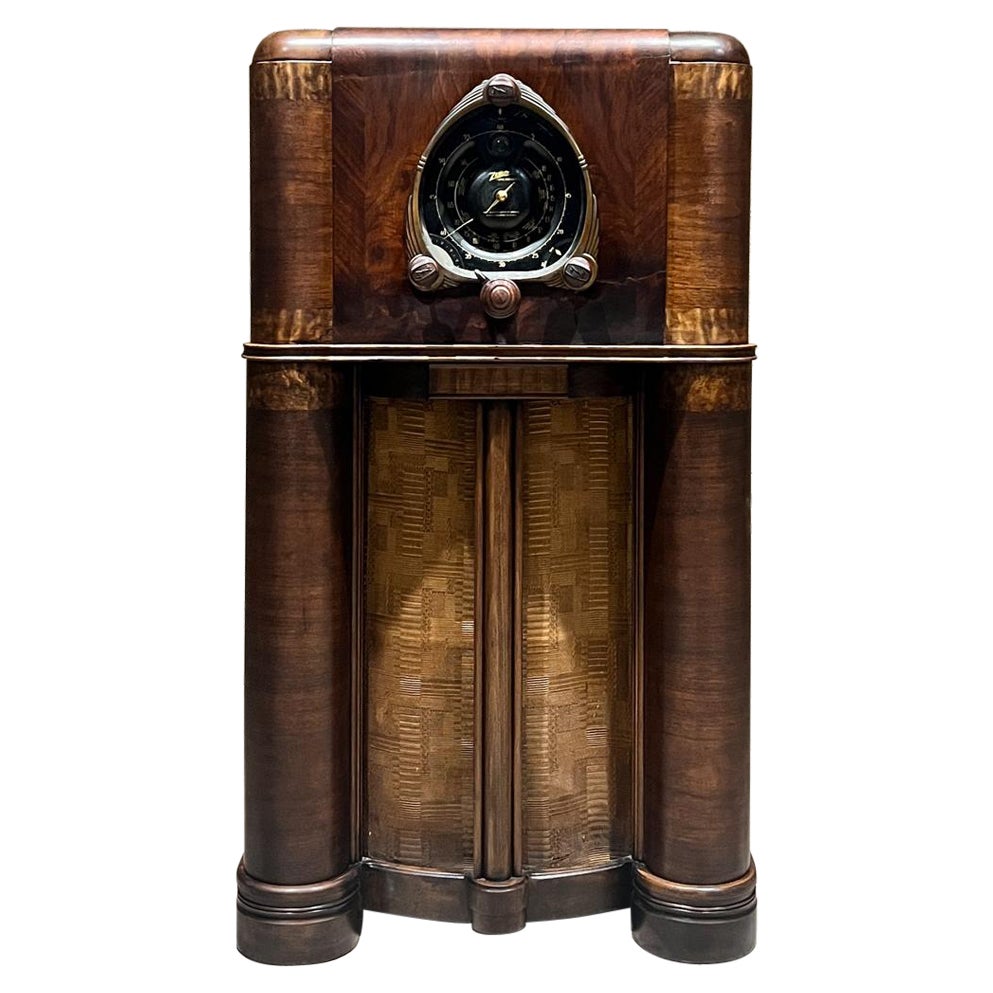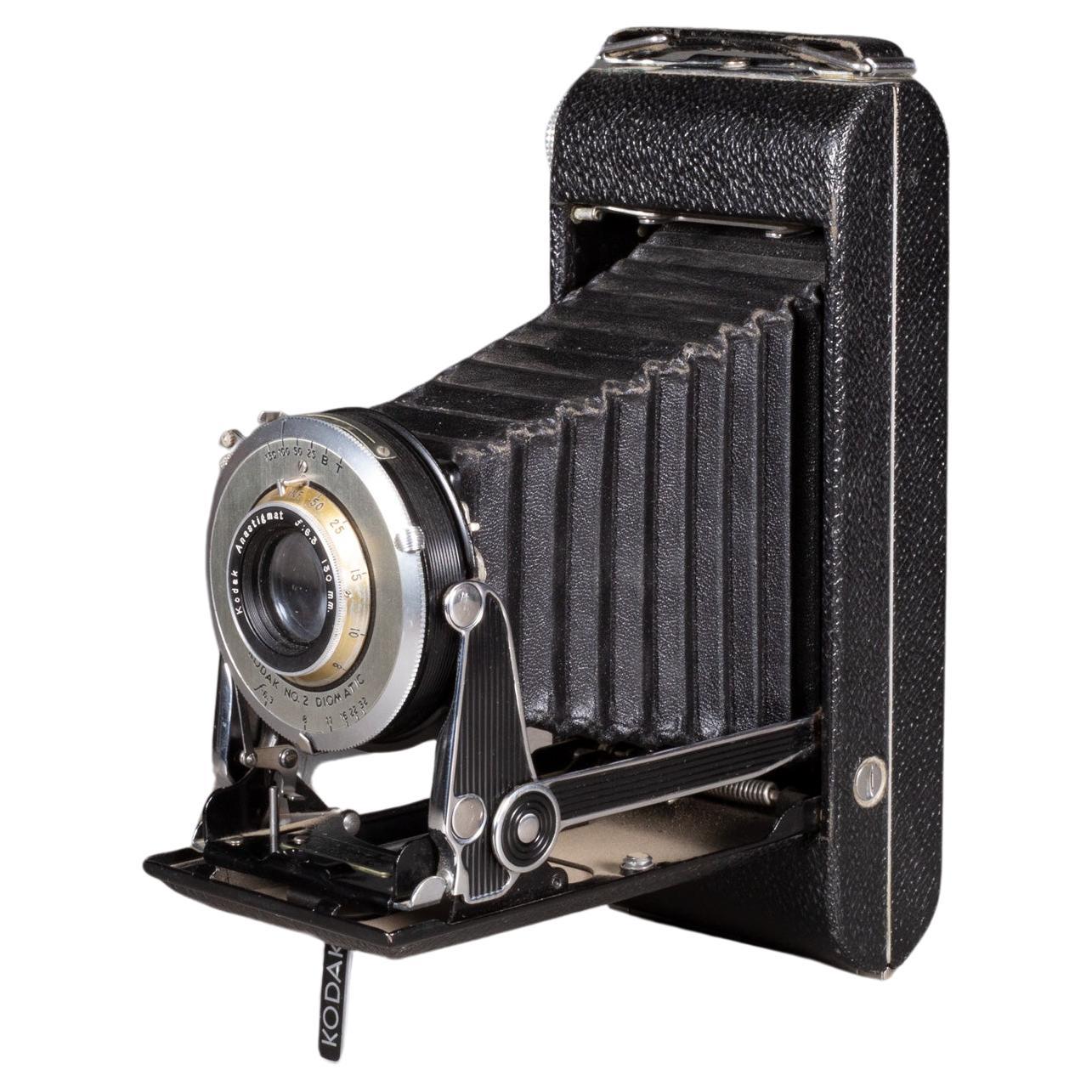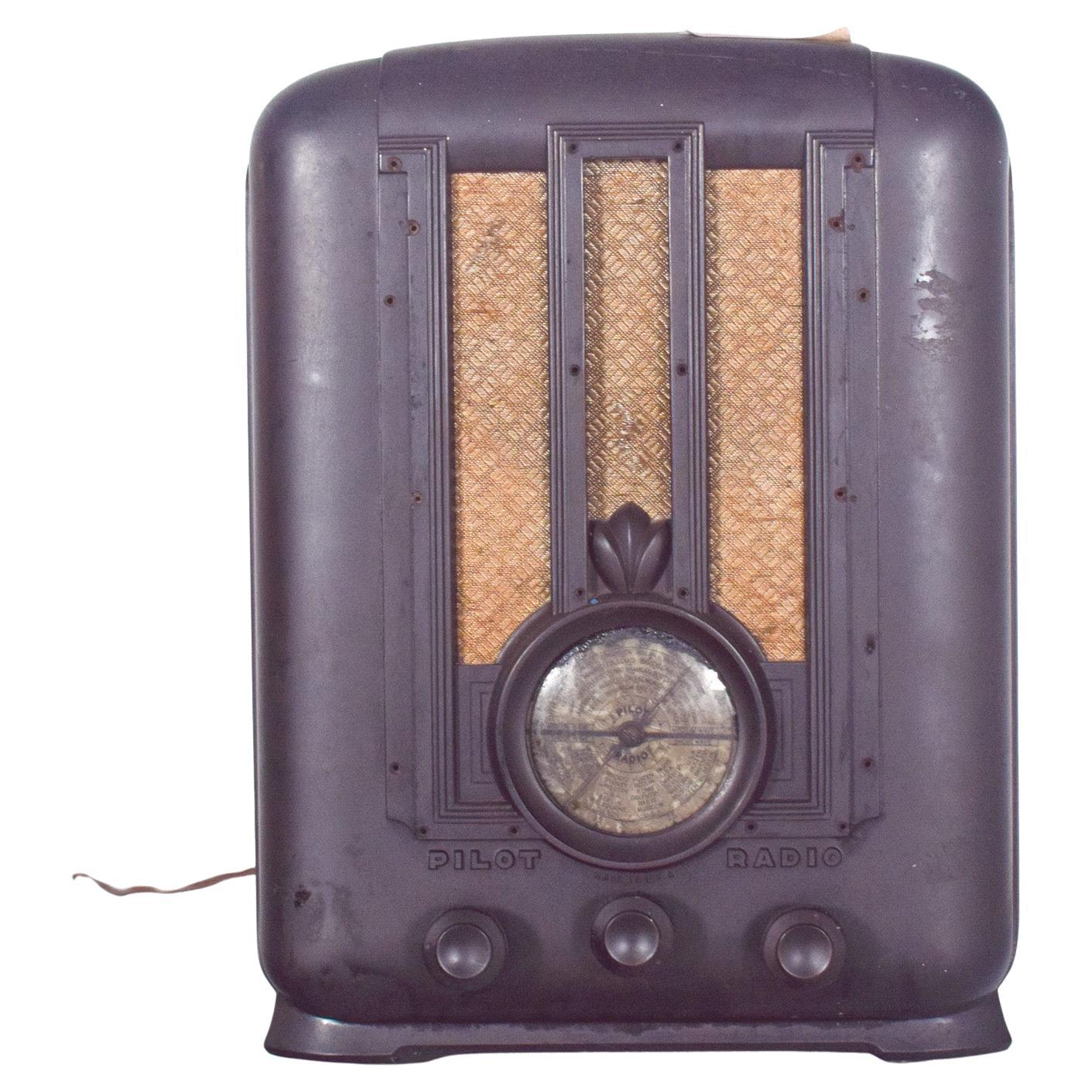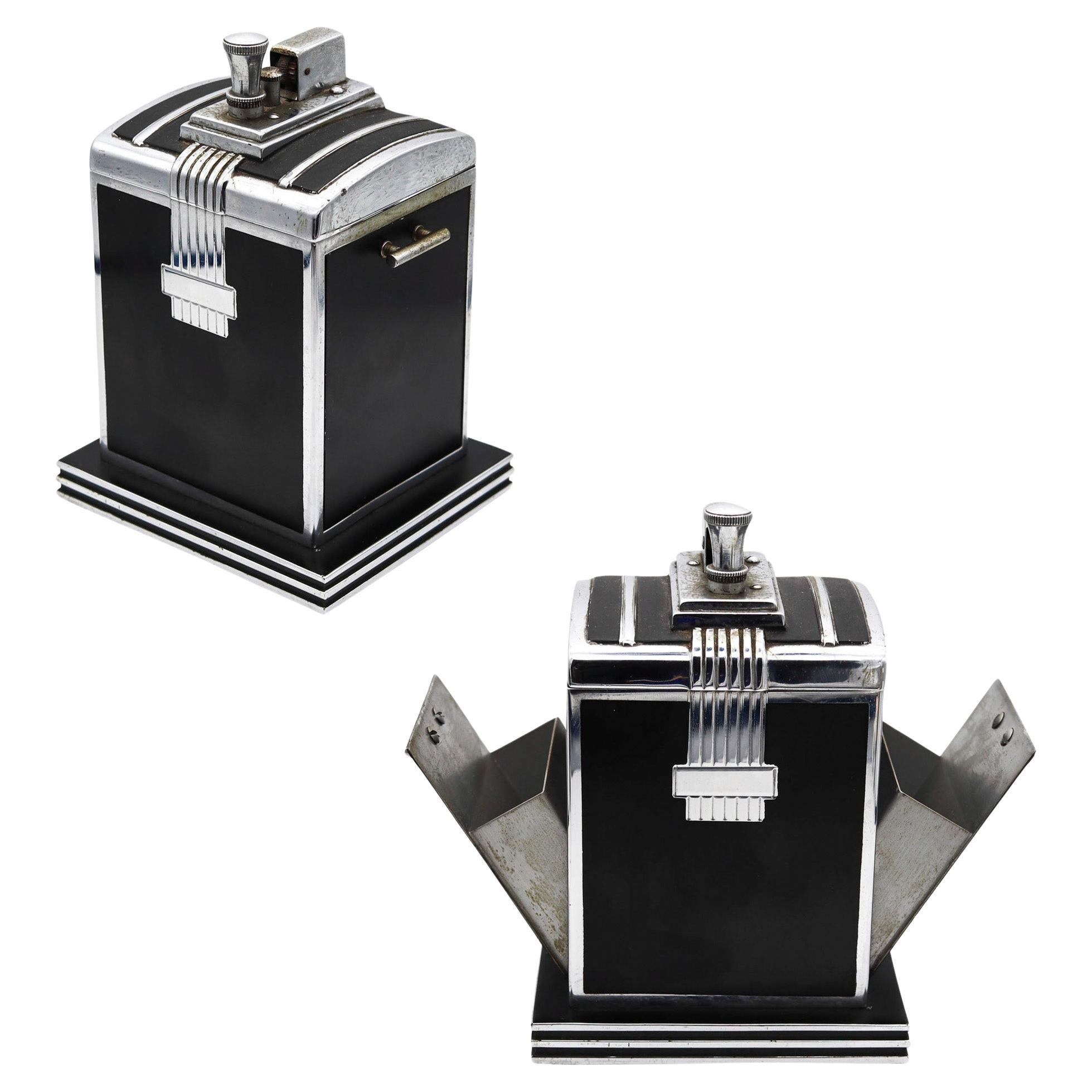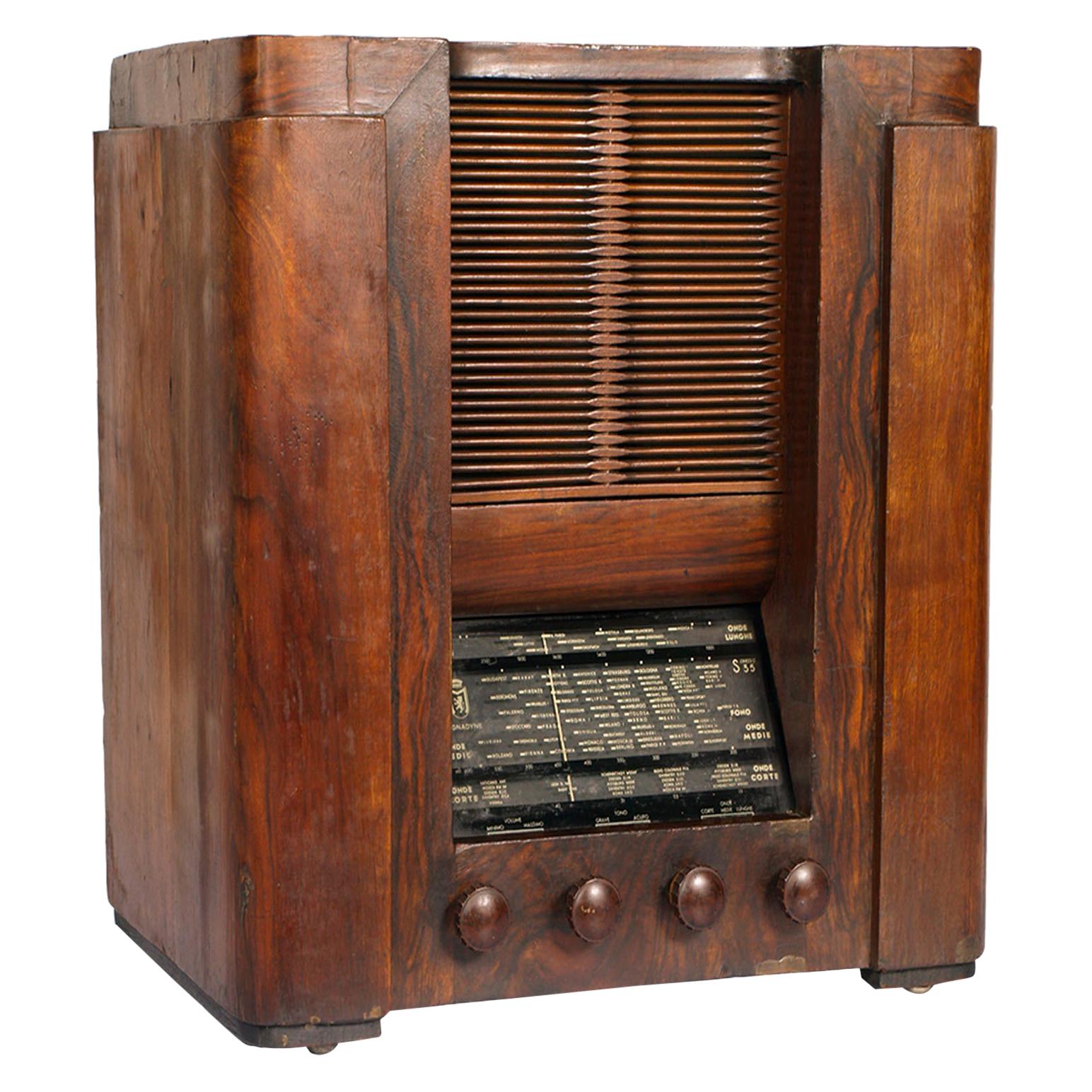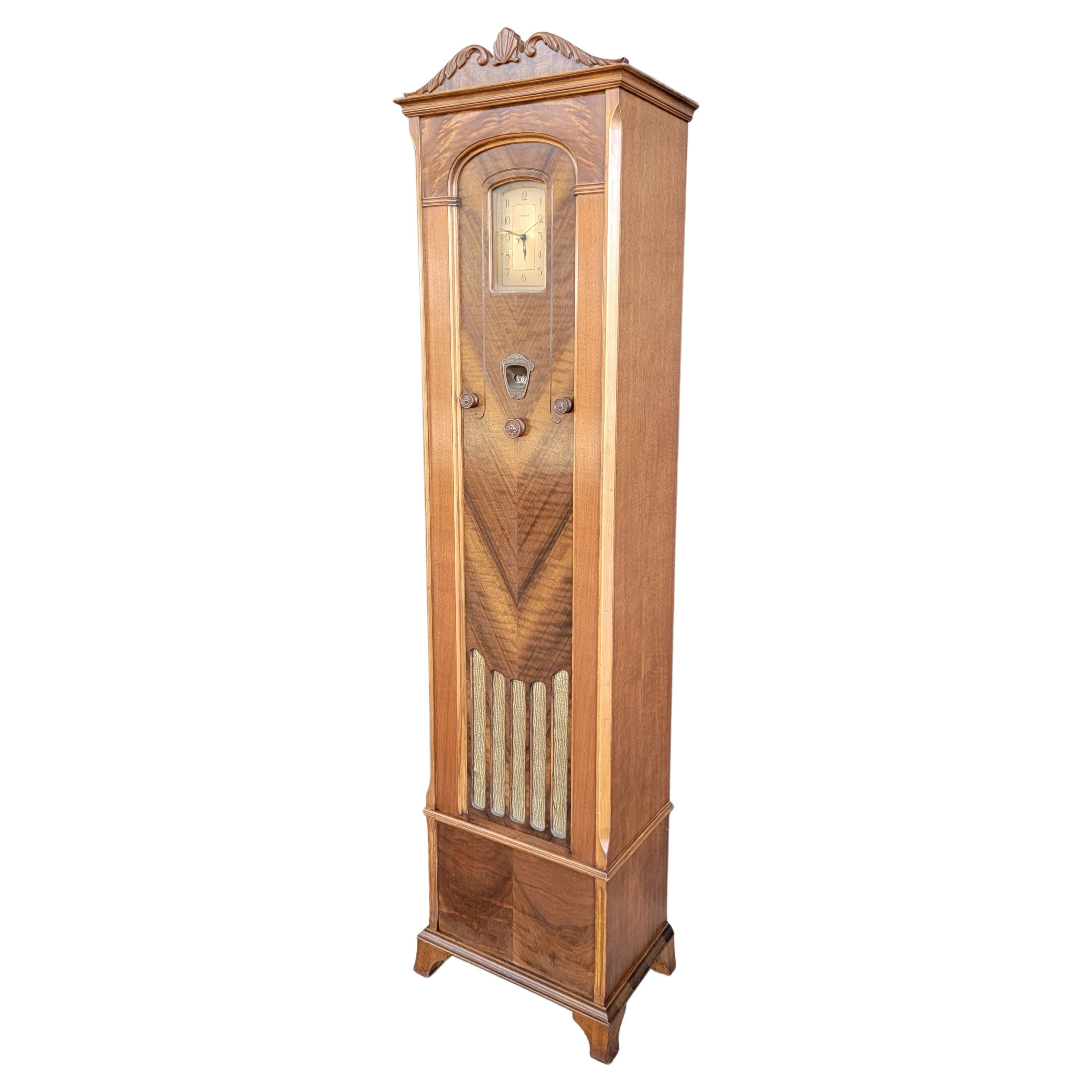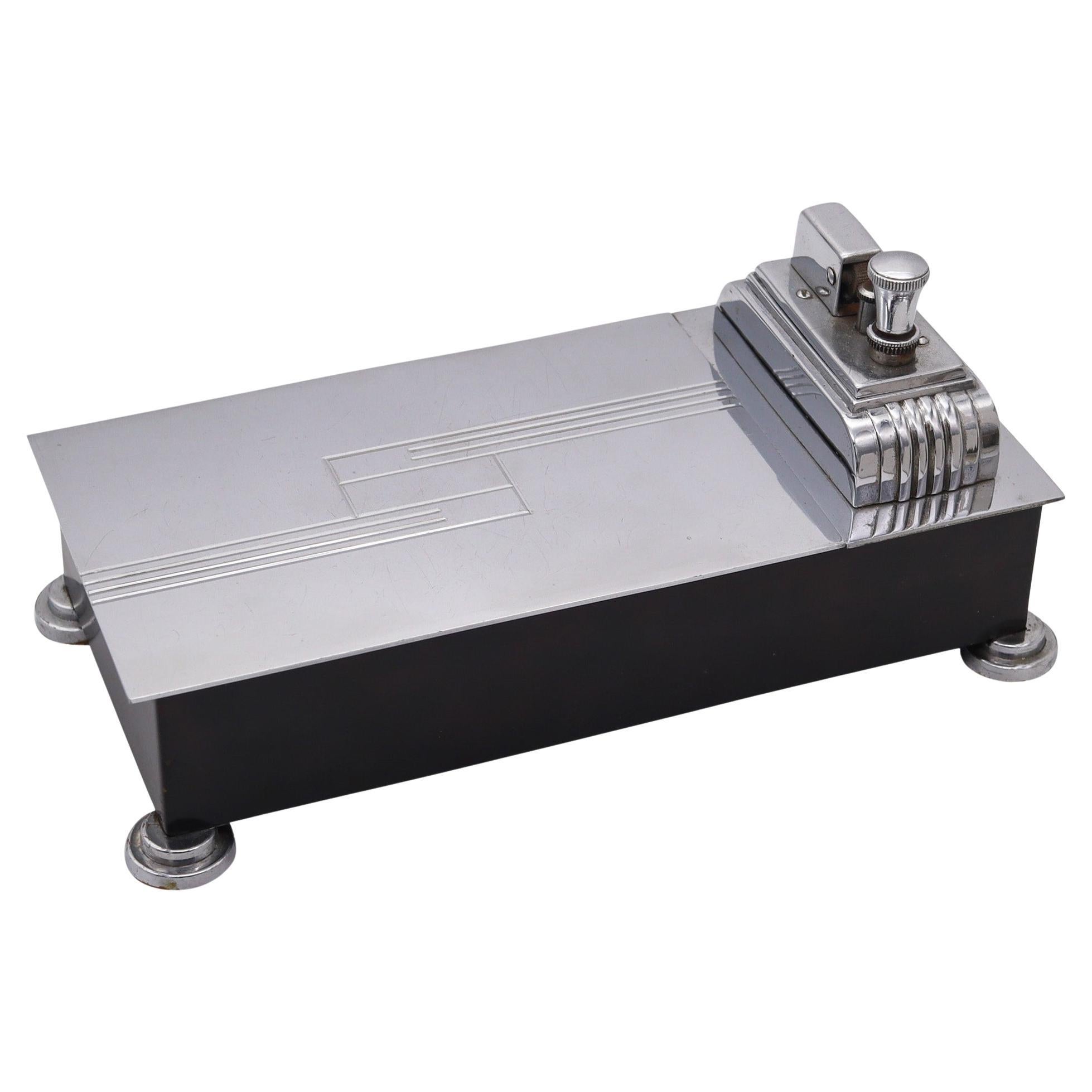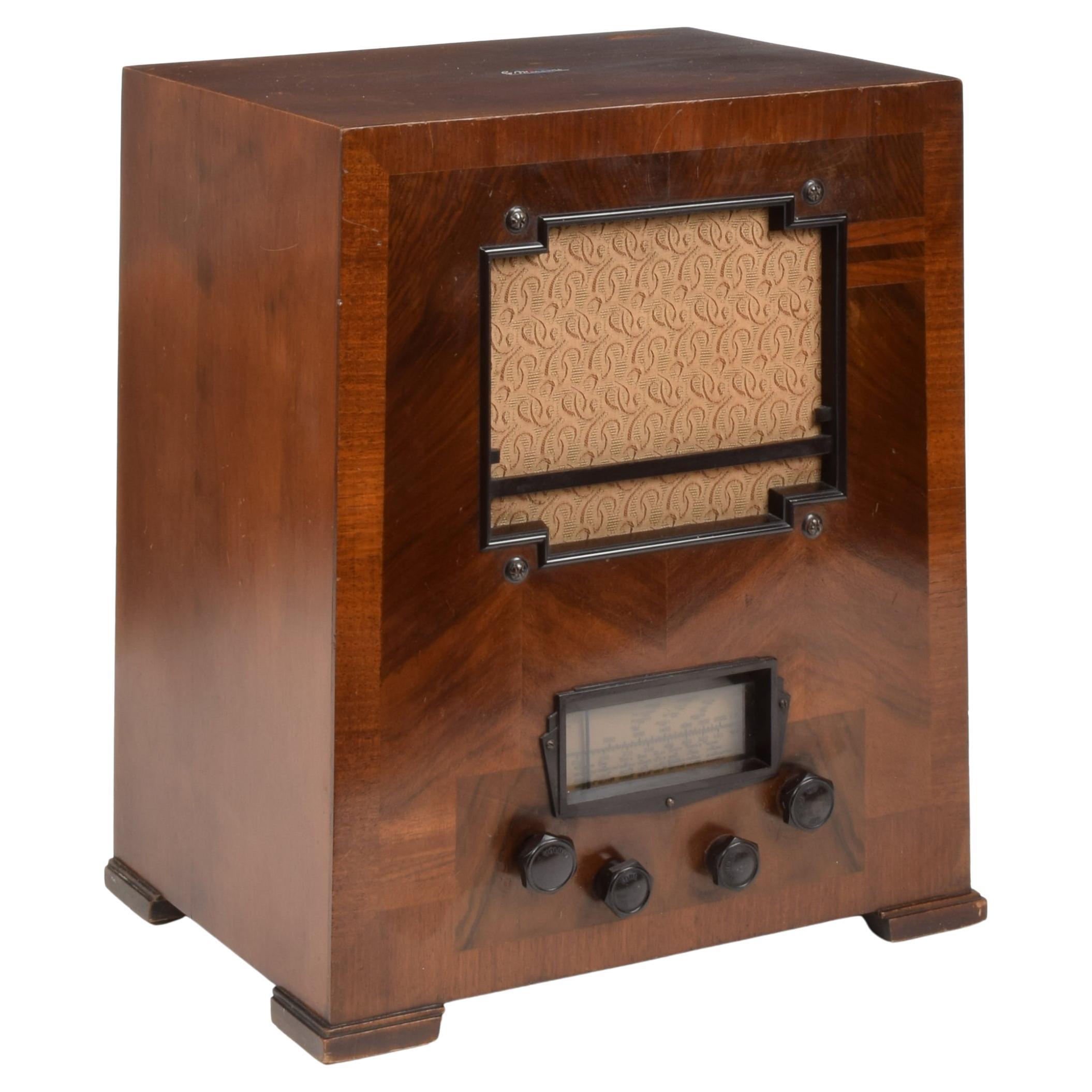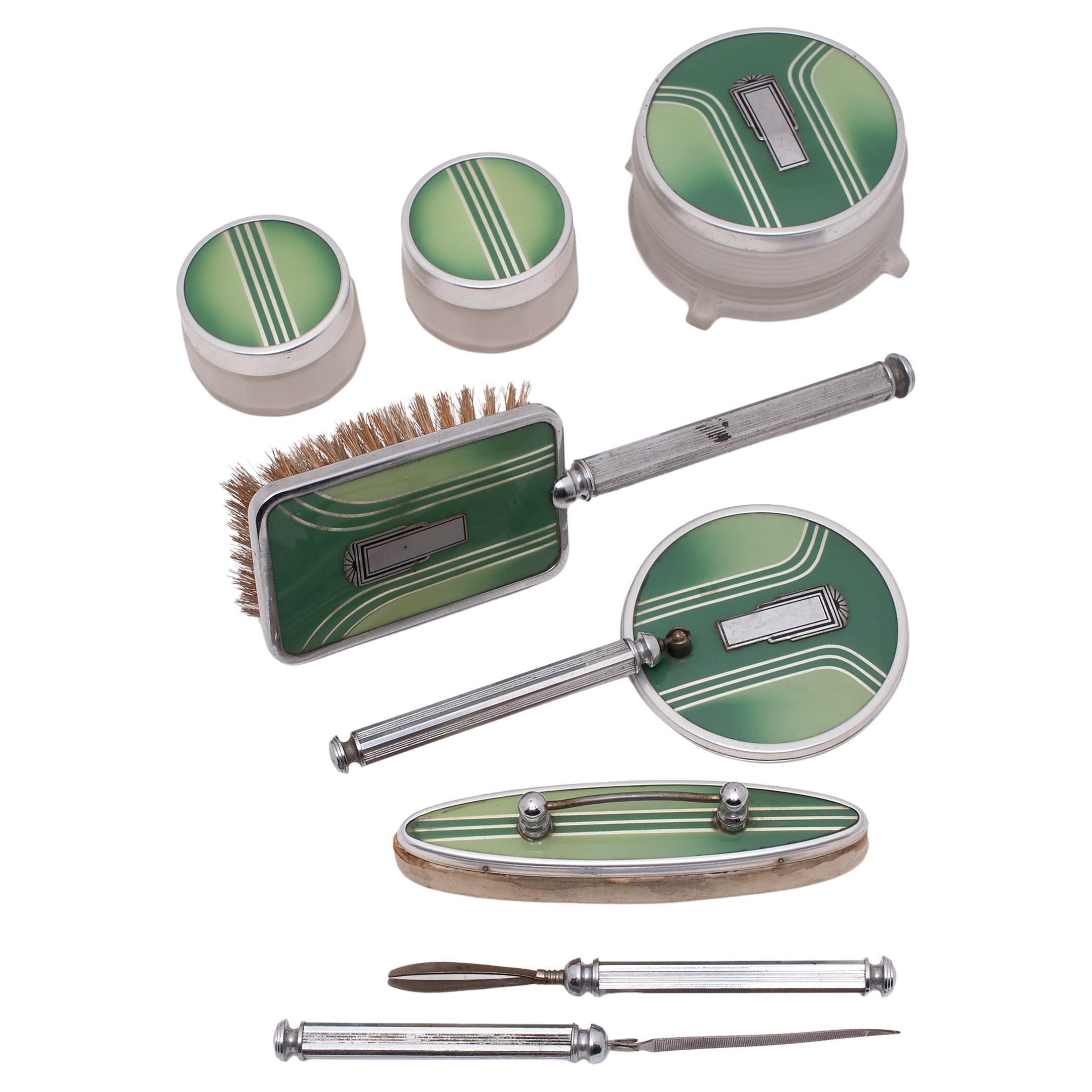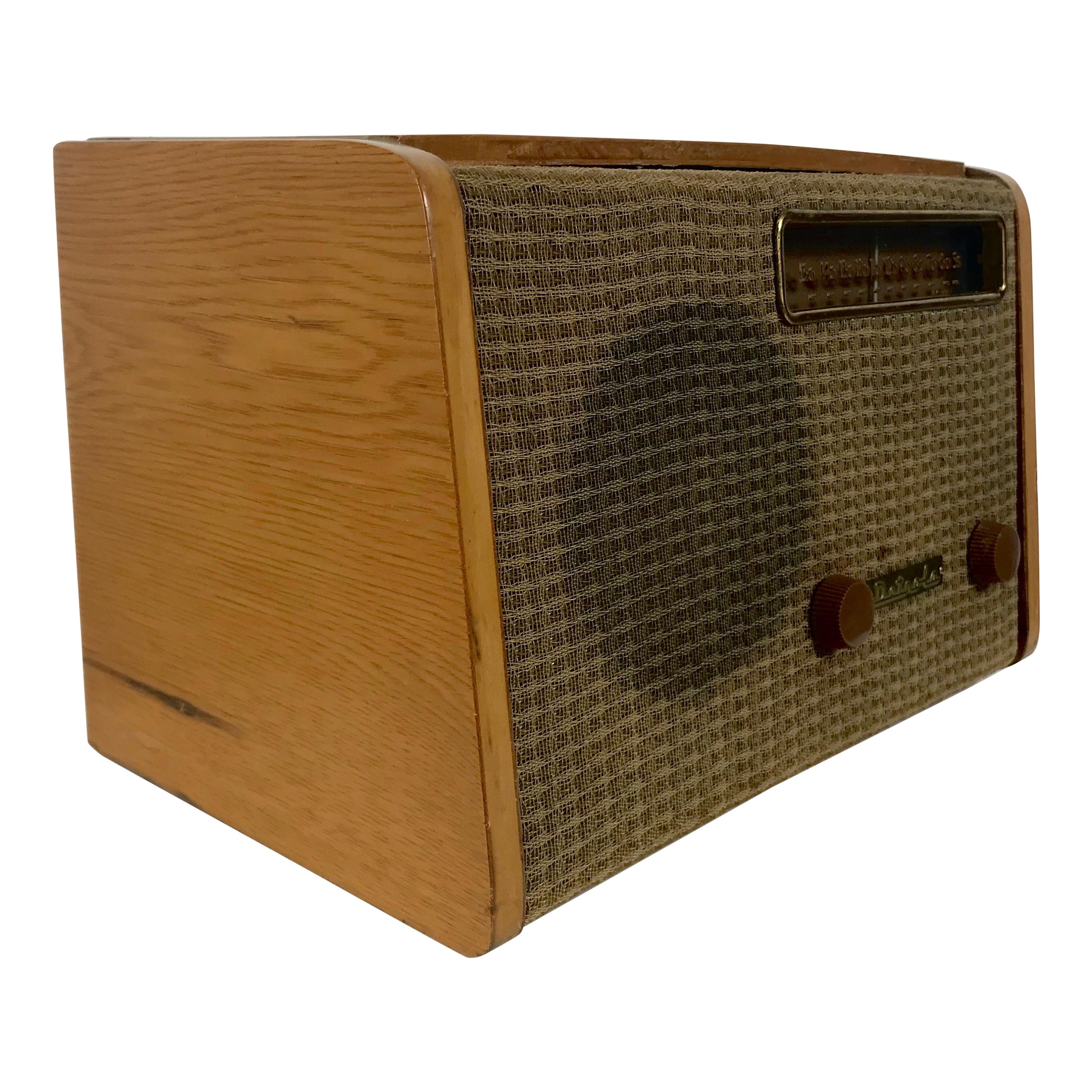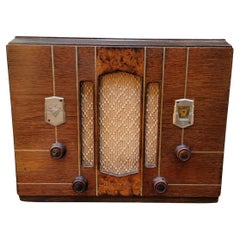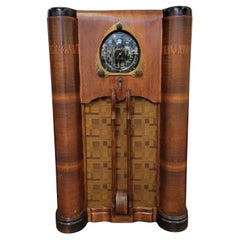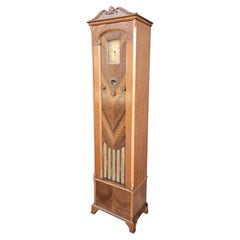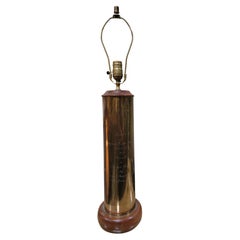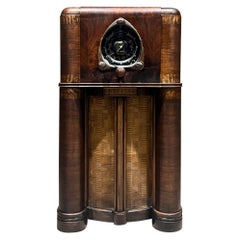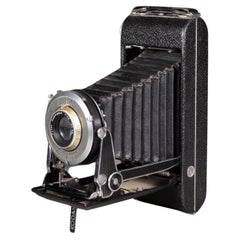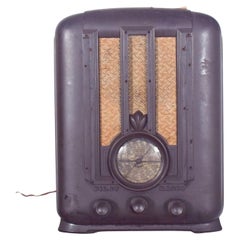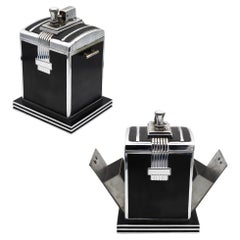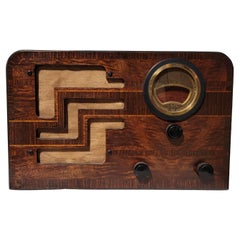
Art Deco Philco Radio, Circa 1937
View Similar Items
Want more images or videos?
Request additional images or videos from the seller
1 of 10
Art Deco Philco Radio, Circa 1937
About the Item
- Creator:Radiobar Corp. and Philco (Maker)
- Dimensions:Height: 10.25 in (26.04 cm)Width: 15.88 in (40.34 cm)Depth: 8.75 in (22.23 cm)
- Style:Art Deco (Of the Period)
- Materials and Techniques:
- Place of Origin:
- Period:
- Date of Manufacture:1937
- Condition:Repaired: Older restoration. Rewired: Repaired tio working order. Repaired to working order.
- Seller Location:Fulton, CA
- Reference Number:1stDibs: LU5539232130722
About the Seller
5.0
Platinum Seller
Premium sellers with a 4.7+ rating and 24-hour response times
Established in 1978
1stDibs seller since 2020
157 sales on 1stDibs
Typical response time: 1 hour
Authenticity Guarantee
In the unlikely event there’s an issue with an item’s authenticity, contact us within 1 year for a full refund. DetailsMoney-Back Guarantee
If your item is not as described, is damaged in transit, or does not arrive, contact us within 7 days for a full refund. Details24-Hour Cancellation
You have a 24-hour grace period in which to reconsider your purchase, with no questions asked.Vetted Professional Sellers
Our world-class sellers must adhere to strict standards for service and quality, maintaining the integrity of our listings.Price-Match Guarantee
If you find that a seller listed the same item for a lower price elsewhere, we’ll match it.Trusted Global Delivery
Our best-in-class carrier network provides specialized shipping options worldwide, including custom delivery.More From This Seller
View AllArt Deco Radio by American Bosch Circa, 1935
Located in Fulton, CA
Classic Art Deco AM radio by United American Bosch (Magnito Corporation) Springfield Mass. circa. 1935. Restored to original working condition.
Category
Early 20th Century American Art Deco Musical Instruments
Materials
Steel
Zenith Console Radio Model 9-S-262
By Radiobar Corp. and Philco
Located in Fulton, CA
A Philco Model 9-S-262 console radio with multiple band dial. Circa. 1938. All electrical components and speaker intact, but not tested. Beautiful dial, grill cloth and finish.
42 ...
Category
Early 20th Century American Art Deco Musical Instruments
Materials
Walnut
$1,250 Sale Price
24% Off
Grandfather Clock Radio by Silvertone, Circa 1931
By Silvertone
Located in Fulton, CA
Scarce, Silvertone clock radio. Made by the Colonial Radio Company in 1931 and retailed under the Silvertone name by Sears Roebuck Company. Exceptional con...
Category
Early 20th Century American Art Deco Historical Memorabilia
Materials
Steel
Historical Presentation Table Lamp Early Aeronautics Circa. 1916
Located in Fulton, CA
A one-of-a-kind important and historical aeronautical achievement presentation in the form of a lamp. Engraved on what appears to be a brass mortar shell. Presented by the Japanese government to Arthur Smith in 1916. Arthur Smith was a famous American airplane pilot during the early 20th century.
Measures 28.5 inches to top of finial.
This lamp was presented by the Japanese government to Arthur Smith in 1916. Aerial exhibitionist Art Smith barnstorming Japan in 1916, 1917. A 10 year old, Honda Mamamatsucho, pedaling a borrowed bicycle over 10 miles to witness the event. Honda would later cite the experience as one of the most impressive things he"d ever seen which cemented his interest in mechanical objects and motorized vehicles that years later led to the creation of the eponymous company bearing his name.
SOURCE: HONDA MOTOR COMPANY
ARTHUR R. SMITH 1890-1926
Was Fort Wayne Indiana's "Bird Boy." He was a pioneer of aviation, a creative thinker, and a hard worker whose self-confidence and faith brought the thrill of flight to legions of people across the U.S. and Japan.
Just two years after the Wright Brothers flight at Kitty Hawk...
Category
Early 20th Century Japanese Industrial Historical Memorabilia
Materials
Brass
Trench Art Vase Dated 1918-19
Located in Fulton, CA
Extraordinary example of WWl Trench Art. Historical significance as this vase is signed by the soldier that crafted it, "Lieutenant Thorburn" including regiment "62nd Reg" and date "1918-19". Also inscribed A. E. F. The AEF helped the French Army on the Western Front during the Aisne Offensive (at the Battle of Château-Thierry and Battle of Belleau Wood...
Category
Early 20th Century American Folk Art Historical Memorabilia
Materials
Brass
Art Nouveau Gong Brass & Hammered Copper
Located in Fulton, CA
A transitional Art Nouveau / Arts & Crafts gong made of solid hammered copper and brass. Circa. 1910. Striker is not original to gong.
Category
Early 20th Century Art Nouveau Musical Instruments
Materials
Brass, Copper
You May Also Like
1930s Art Deco Zenith Radio Floor Model Console
By Zenith
Located in Chula Vista, CA
AMBIANIC presents
Art Deco Vintage Decorative Zenith Floor Model Radio Console
43 h x 24 W x 16.75
Preowned vintage condition
Tested not working. Missing...
Category
Mid-20th Century Art Deco Musical Instruments
Materials
Wood
$1,000 Sale Price
20% Off
Art Deco Kodak Senior Six-16 Folding Camera c.1937-1939
By Eastman Kodak
Located in San Francisco, CA
ABOUT
An Art Deco Kodak Senior Six-16 Folding Camera with a leather wrapped body, chrome and black accents and flip out view finder.
Shown with life size hand. Sold as decorative o...
Category
Early 20th Century Art Deco Scientific Instruments
Materials
Metal, Chrome
Art Deco Old Pilot Table Radio, Model 203
Located in Lisboa, Lisboa
Old Pilot table radio, model 203. Old Pilot table radio, model 203. With a compact structure in dark bakelite, with a finish characteristic of the period. The front features an Art D...
Category
Mid-20th Century American Mid-Century Modern Musical Instruments
Materials
Metal
RONSON 1937 Art Deco T-T Smoker's Desk Double Box & Touch Tip Lighter
By Ronson Art Metal Works, Ronson
Located in Miami, FL
T-T Smoker's desk box with lighter made by Ronson.
This desk box for cigarettes is exceptional and very rare. Has been created in the city of Newark, New Jersey United States by The...
Category
Vintage 1930s American Art Deco Tobacco Accessories
Materials
Enamel, Steel, Chrome
$3,712 Sale Price
25% Off
1930s Magnadyne Art Deco Tube Radio, Empire Style, Working, All Original Parts
Located in Vigonza, Padua
Italian 1930s Magnadyne (Turin) Art Deco tube radio, empire style, working, all original parts
Measures in cm: H 45, W 42, D 45.
Category
Mid-20th Century Italian Art Deco Musical Instruments
Materials
Walnut
RONSON 1937 Art Deco Brown Lacquered Desk Box With Touch Tip Striker Lighter
By Ronson Art Metal Works, Louis Vincent Aronson
Located in Miami, FL
Desk cigarettes humidor box with lighter designed by Ronson.
This is an amazing desk cigarettes box & touch-tip lighter, created in New Jersey United States by The Ronson Lighter Co. during the art deco period, back in the 1937. This is a rare near mint box with a single lid with a five-barrels hinge and an integrated touch tip striker lighter. It was designed with strong geometric patterns and crafted in solid chromed steel. Embellished with black lacquer, creating a great color contrast and the interiors are lined up with natural cedar wood. Extremely well made and solid construction with great care and attention to details. This surely is a very decorative piece and should be a great conversation item.
Model: 16268.
Country: New Jersey, United States.
Period: Art Deco, 1937.
Materials: Chromed steel, cedar wood, black lacquer.
Weight: 897.5 Grams, (1.96 Pounds).
Measurements: 203 mm by 102 mm by 89 mm (8.0 x 4.0 x 3.5 Inches).
Marks: Stamped with the maker's mark and signed, "FASHIONED BY RONSON NEWARK NJ US PATS BRITISH PAT IN CANADA 1935 NEWARK NJ-USA-ART METAL WORKS INC. RONSON-TOUCH-TIP ".
The Ronson Lighter Company
The company started as The Art Metal Works in 1897 and was incorporated on July 20, 1898, by Max Hecht, Louis Vincent Aronson and Leopold Herzig, in Newark, New Jersey. Louis V. Aronson was a huge creative driving force for the company; and, with a few business adjustments, including the addition of Alexander Harris (1910–11) as Business Manager, the company soon became World Famous. In the 1910s The Art Metal Works were producing very good quality Hood Ornaments and gained a reputation as a dependable supplier of same. All accounts state that Louis Aronson was a gifted man, who at 16 years old set up a money-making shop in his parent's home - before receiving a U.S. patent for a commercially valuable metal-plating process he developed when he was 24 years old, and he sold half the rights while retaining the Right to Use. "His experiments, which he has been conducting since his early youth, resulted in 1893 in the discovery of a process for electrically producing tinplate. Much money was expended upon improving the process... and has been of great practical value to the whole industry. Retaining its rights, he sold half the patent rights, and later used part of the proceeds to open the Art Metal Works in Newark, N.J. Soon the company was producing a variety of high-quality Lamps, Book ends, Art Statues and other decorative items, prized today for their detail in the collector marketplace.
Louis Vincent Aronson
Louis Vincent Aronson was an American inventor, industrialist and philanthropist who is best remembered as the inventor of Ronson lighters. "He was a son of Simon and Jennie Aronson, who were natives of Prussia. He was born December 25, 1869, in New York City, and there his boyhood was spent. Aronson was an exceptionally gifted young man who graduated from public school at the age of 12 before entering a New York Technical School specializing in metallurgy, practical metal working and mechanical drawing. At the same time, he set up a laboratory in the basement of his parents' home where he experimented with plating processes and turned-out money-making items while he devised ways of metalizing common items, in a durable finish of matte gold, including flowers, butterflies, animal claws and baby shoes. Aronson natural ability for designing was honed at the technical school and served him well throughout his life. He excelled and completed the School four year academic program in three years. When he graduated in 1886, at the age of 16, he was qualified as an Expert Metallurgist, Draftsman and Designer, he also had a high-level knowledge of Chemistry. He returned to the school five years later as an instructor in metallurgy for several years before devoting all his time to his own company. When he was 24 years old, he sold the rights to a commercially valuable metal plating process according to Urban Cummings book Ronson, The World’s Greatest Lighters, Wick Lighters 1913–2000. He gained public recognition when he won an award in 1893 from the Belgian government for the creation of the first non-toxic match, and young businessman Aronson received 50,000 Francs, equaling $10,000 in U.S. dollars. In 1897 he received a U.S. patent (592,227) for a match design (called the Wind-match) that would light in windy conditions or when wet. He continued working on his match designs including inventing the “Birds Eye” or “Kitchen” match that had a dual-tip design in 1903; this was an important safety improvement because friction matches of the day would sometimes light accidentally especially when stepped on or while in one’s pocket. He realized that placing a small friction ignition chemical on the tip instead of the entire match-head greatly limited accidental ignition. This style of match is still in use today.
Literature: Urban K. Cummings, Ronson, the World's Greatest Lighter: Wick Lighters 1913-1966 Bird Dog Books, California. 1992. Pp-168 Figure-187 for this box illustrated.
Note: This piece and the touch-tip lighter are empty of any flammable, gas or butane substances and is ready to be ship by any carrier,
Condition: The overall condition of this Ronson cigarettes...
Category
Vintage 1930s American Art Deco Tobacco Accessories
Materials
Steel, Chrome
$1,123 Sale Price
25% Off
